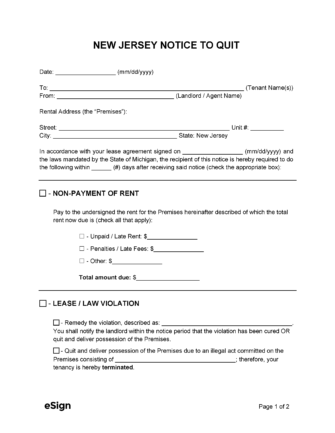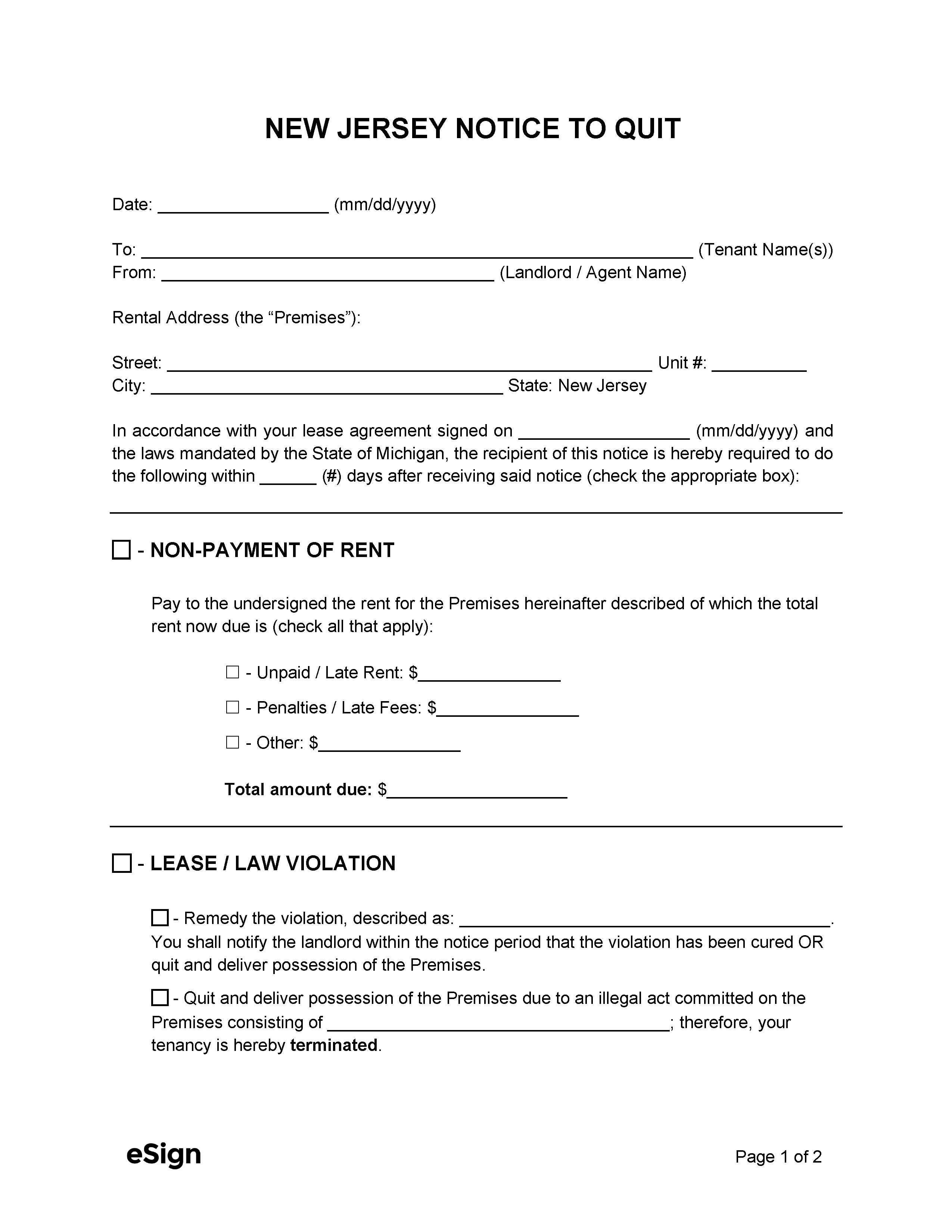
A New Jersey eviction notice is used by landlords to inform tenants that their rental agreement will be terminated and they will be evicted if they don’t move out. The document states the landlord’s justification for terminating the lease and, in most cases, the number of days the tenant has to comply.
A New Jersey eviction notice is used by landlords to inform tenants that their rental agreement will be terminated and they will be evicted if they don’t move out. The document states the landlord’s justification for terminating the lease and, in most cases, the number of days the tenant has to comply.
PDF Download
A New Jersey eviction notice is used by landlords to inform tenants that their rental agreement will be terminated and they will be evicted if they don’t move out. The document states the landlord’s justification for terminating the lease and, in most cases, the number of days the tenant has to comply.
5 | 22 Ratings Downloads: 5,349
Non-Payment Cases – If the tenant hasn’t paid their rent on time, the landlord can terminate the tenant’s lease and evict them without notice. The only exception is if the landlord habitually accepts late rent from the tenant. [2]

If the tenant breaks the terms of their lease, frequently pays rent late, or causes a disturbance to neighbors, the landlord must serve them with a Notice to Cease before terminating their rental agreement.
The notice orders the tenant to stop their non-compliance and, in certain cases, give them a time frame to fix their violation.
A Notice to Cease is not required in the following situations:

If a tenant does not stop their non-compliance, or in instances where such notice is not required, the landlord can serve them with a Notice to Quit.
The landlord must deliver the notice by certified mail or personally serve it on the tenant (or family member who is over 14 years of age).

To begin legal action against the tenant, the landlord will need to file a Verified Complaint and Summons with the clerk of the Special Civil Part Office in the county where the property is located.
The clerk will charge the landlord a fee to file the documents and, after setting a hearing date, will arrange for the Complaint and Summons to be served on the tenant.

On the date of the hearing, both parties must arrive on time, or the case may be dismissed. If the tenant doesn’t appear, a default judgment will likely be entered against them.
After considering the evidence, the judge will reach a verdict. A decision in the landlord’s favor will result in them being granted a Judgment for Possession to reclaim their property.
If the tenant wins, the case will be dismissed and they will be able to continue their lease.

After receiving a judgment in their favor, the landlord can file a Request for Residential Warrant of Removal from the clerk of the court to have the tenant evicted.
The tenant has three days from the date that the Warrant of Removal is issued to vacate the premises. If the tenant does not leave the property within three days, the landlord can arrange for a Court Officer to forcibly remove the tenant.
Forms
Resources